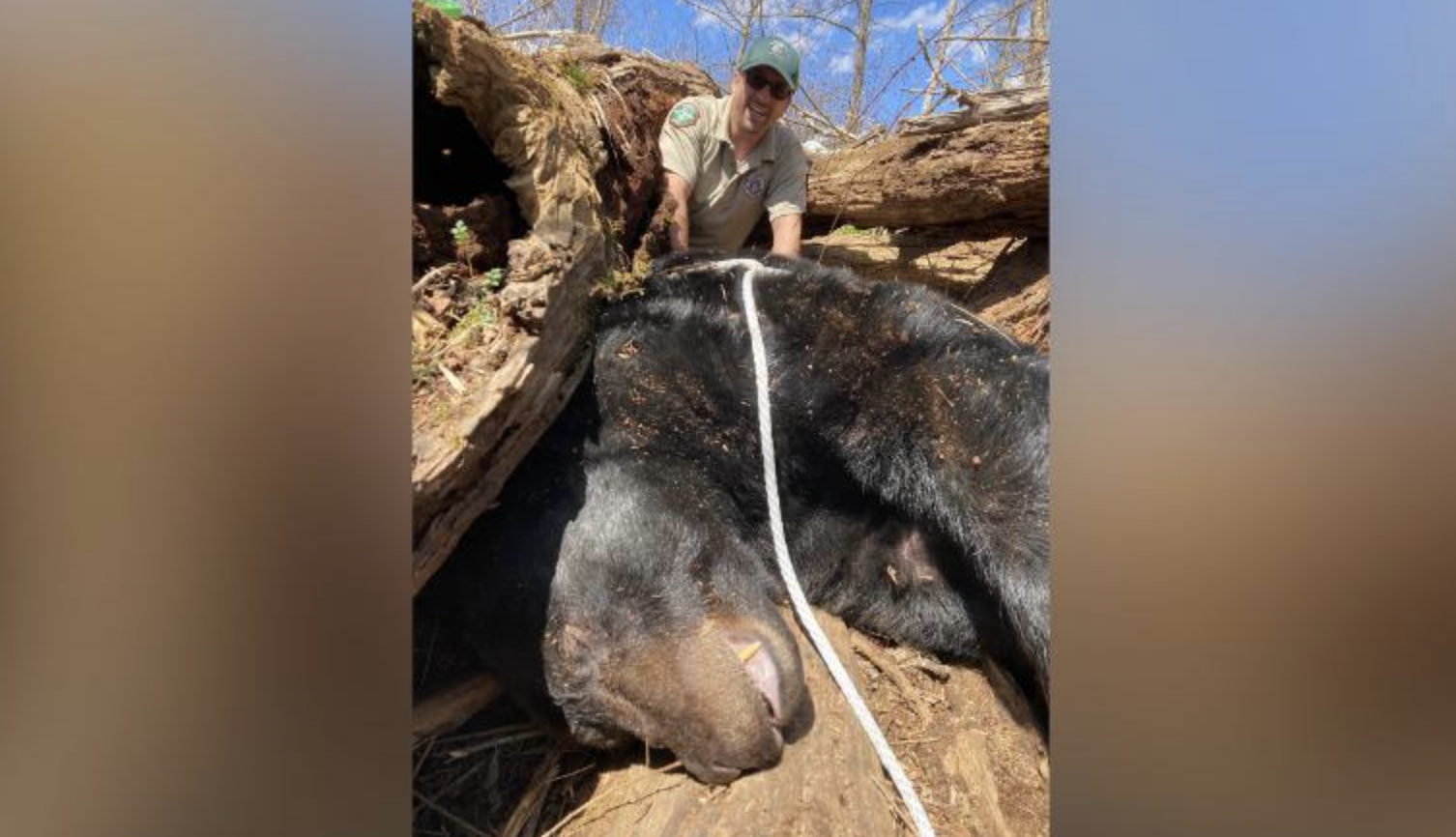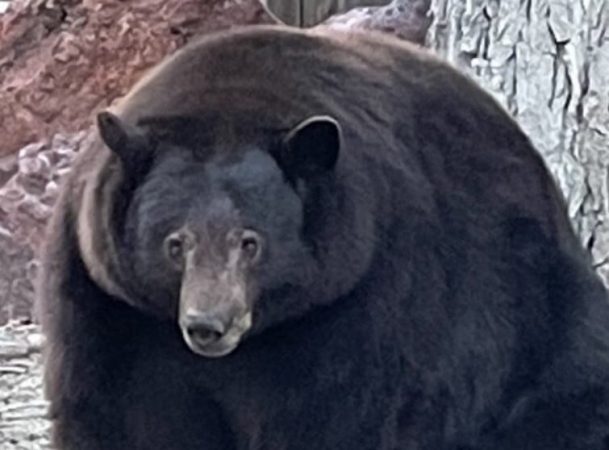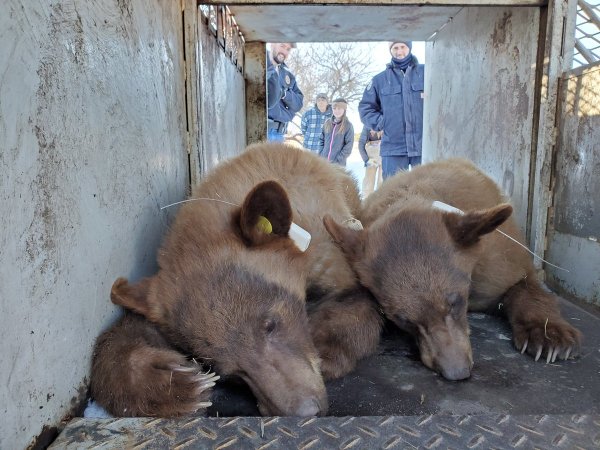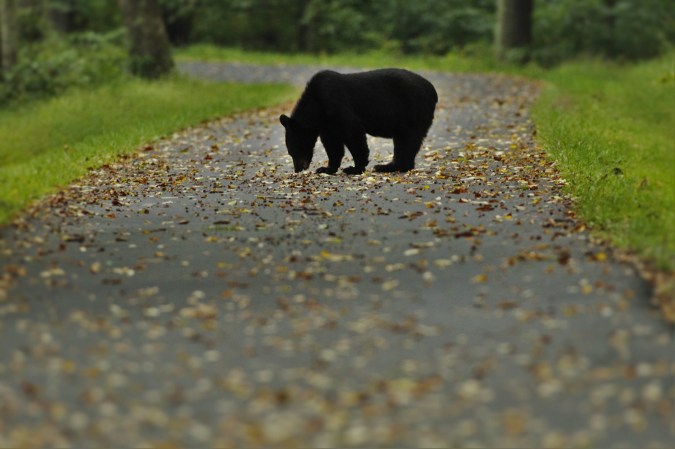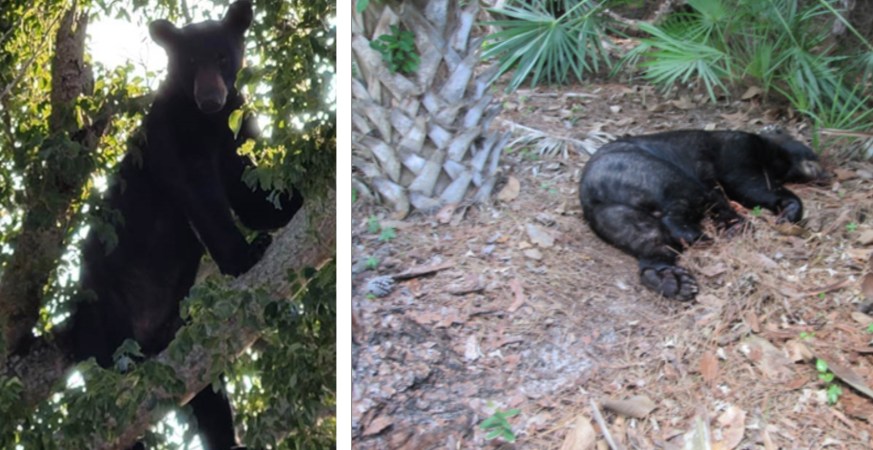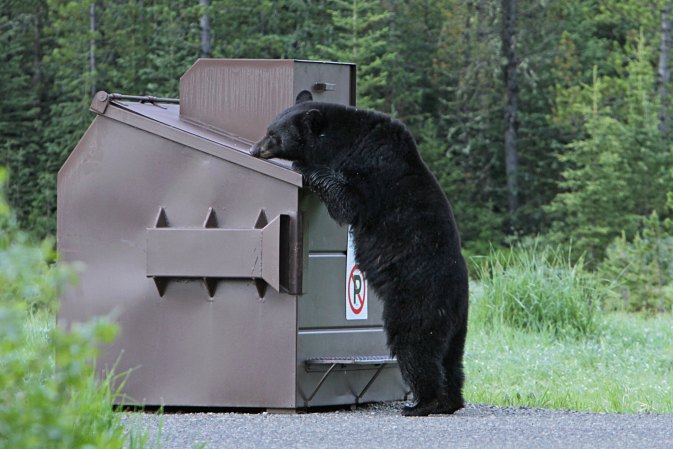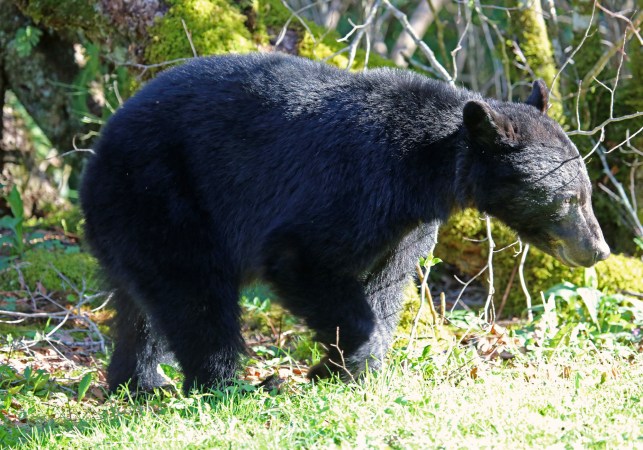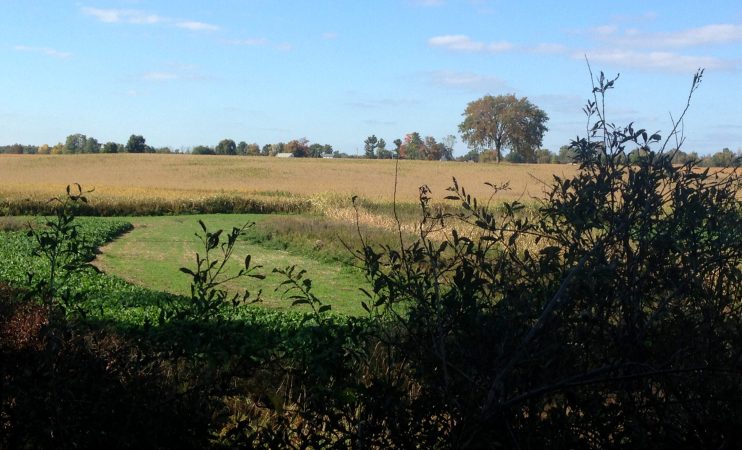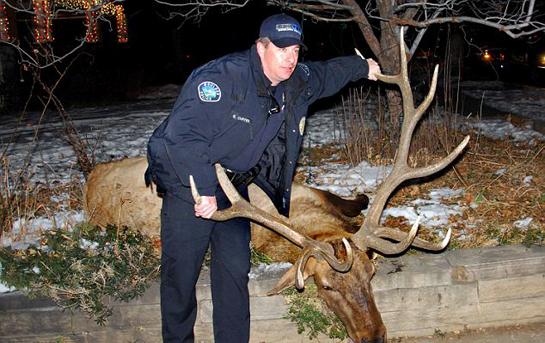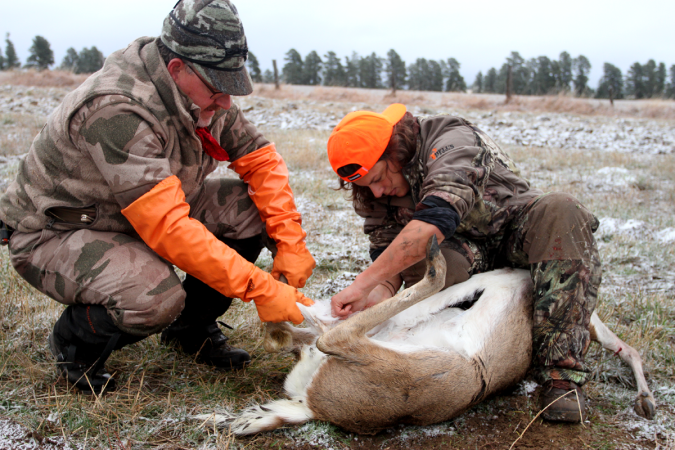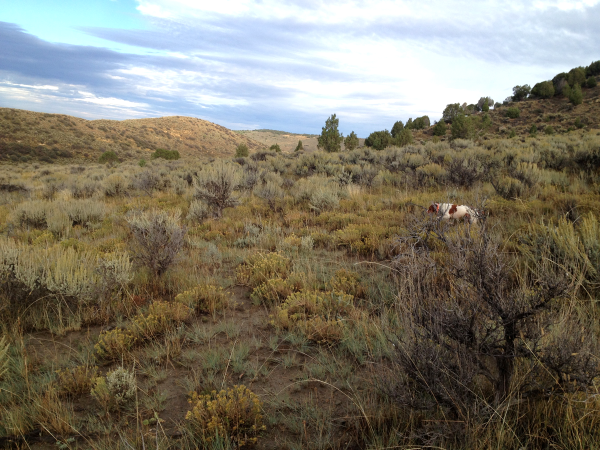Officials with the Tennessee Wildlife Resources Agency recently relocated a very large and habituated black bear that was living near Tusculum University. After finding the bear in a vacant woodlot close to campus last week, they tranquilized the big bruin and transported it on March 24 to a remote part of Cherokee National Forest.
According to the agency, which explained its decision in a Facebook post, the 500-pound black bear lived near the college campus and had gotten in the habit of procuring food there over the years. Located in Greeneville, Tennessee, the campus is situated just outside of national forest lands in the foothills of the Appalachian Mountains.
“The bear had regular access to garbage, birdseed, and pet food and had been in the area for a few years,” TWRA Wildlife Sergeant David Carpenter explained. “But [it] ramped up its activity and property damage last year.”
Because of the bear’s growing tendency to seek out human foods—and “the increasing potential for negative interaction” that this created—the agency tried to trap it last year but was unsuccessful. As the bear continued its raiding habit earlier this year, wildlife officers decided to take a more direct approach.
Last week, Sgt. Carpenter, along with officers Ryan Rosier and Austin Wilson, tracked down the black bear and tranquilized it with a dart. Unable to move the huge bruin on their own, the officials requested assistance from the Greeneville Fire Department to move it into a transport cage. Then they drove the bear to its new home in Cherokee National Forest.
Read Next: Watch: Mountain Lion Captured After Officer Chases It Past a Hair Salon in Southern California
The local community lauded TWRA’s decision to relocate the bear instead of euthanizing it. Nearly 2,000 comments were left on social media.
“Great job guys. I know what the alternative was,” one commenter wrote. “You guys proved why you all are so valuable to wildlife.”
Another post thanked the agency and said: “praying that he lives a beautiful healthy life and stays in his new area.”
State wildlife officials will have to wait and see if the bear stays put. Some relocated bears fail to re-adapt to life in the wild and end up wandering back to town. This exact scenario occurred in Traverse City, Michigan, last April. After the Department of Natural Resources trapped, collared, and relocated a food-habituated black bear, the bruin walked roughly 90 miles and was back in the city limits a month later.

